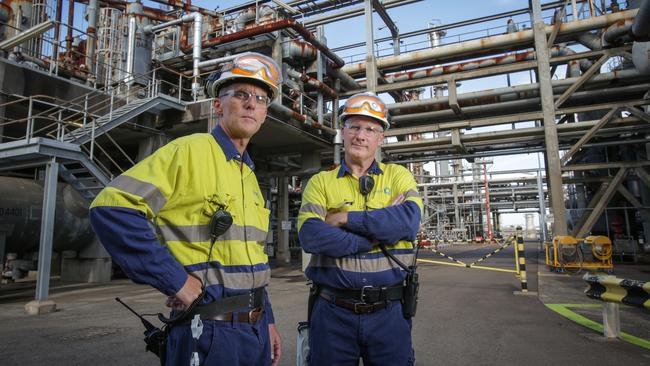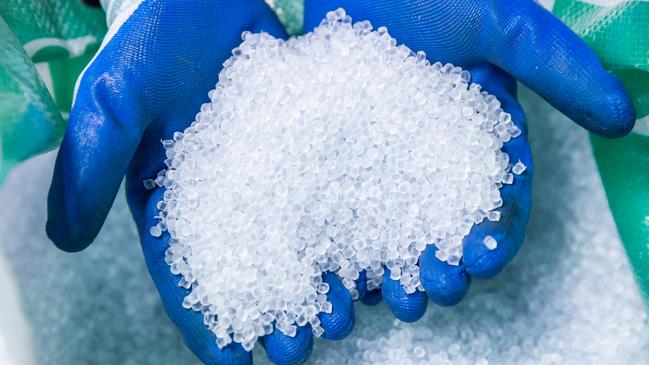Qenos’ inevitable failure exposes a litany of ills: inside the fall of the Australian chemicals major
If Australia’s abundant gas reserves couldn’t support a viable plastics maker, how can we expect critical minerals processing to work any better? Nick Evans looks inside the fall of Qenos.

For more than two decades, plastics maker Qenos has been at the heart of the war over Australian energy and manufacturing policy. Its sad demise is the product of that irreconcilable conflict – and its own arrogance and mistakes.
Qenos’s collapse into administration put an early torpedo through Prime Minister Anthony Albanese’s plans to cast manufacturing as the centrepiece of Labor’s re-election strategy.
It also calls into question Labor’s promise this week to keep gas at the centre of Australia’s national resources sector.
But the disappearance of Qenos, sold to a property developer for its land value, exposes the obvious flaw in Mr Albanese’s plan to extend billions to companies that claim they can build downstream processing plants to turn Australian critical minerals into batteries, solar panels and other “green economy” products.
If Qenos went broke despite Australia’s rich gas endowment, how can anyone really believe that critical minerals processing will work any better?
Qenos’s fate was all but sealed in 2019, as the company was celebrating its 60th anniversary, when ChemChina decided it wanted out of the venerable Australian plastics maker.
For more than three years PwC hawked Qenos to local and international buyers. Not a single bid was received.
The decision to sell was the outcome of a two-year strategic review of Qenos’ manufacturing plants in Sydney and Melbourne, looking for a way to lower costs and secure affordable long-term supplies of gas.
Qenos eked out a $5.9m profit in 2017, and $12.5m the year before. But in 2019 the company booked a $48m loss – and the following years only got worse.

The losses were not the major factor in PwC’s failure to win over would-be buyers, however. Along with regular uncertainty over gas supply and pricing for the two plants, the biggest factor, industry sources say, was the estimated $1.2bn investment needed to modernise and expand Qenos’s local manufacturing plants to make them competitive against competitors in Asia and the Middle East, who operate on a vastly different scale.
Even Qenos’s critics praise the quality of its products and manufacturing processes. But that is not necessarily enough when price is a factor.
While Qenos’s Altona plant in Melbourne was turning Bass Strait ethane into about 200,000 tonnes of ethylene a year, and using the output to make more complex plastics, Asian competitors in South Korea, Thailand and Malaysia were built with 500,000 to 800,000 tonne annual capacities. Some of the monster plants in the Middle East – which pay next to nothing for their gas feedstock – were built with more than five times the capacity of Altona.
None of this was news to ChemChina, though.
Qenos was already struggling when the Chinese state-owned company bought the plastics maker from Orica and Exxon Mobil in 2005 for about $180m.
Even 25 years ago the notoriously fickle nature of Qenos’s financial results – always a prisoner of high labour costs and volatile gas pricing – scared off suitors.
Qenos had a good year in 2004, booking a $90.8m profit. But that was followed by a $118m loss the following year, and Orica had written off the entire $120m value of its stake in the joint venture in 2000.
ChemChina had only one serious competitor in 2005, a consortium backed by private equity, which walked away before final bids were due.
But buying Qenos gave ChemChina access to new markets as China’s economic boom gathered pace and, more importantly, access to the Australian company’s decades of expertise and intellectual property. But even if that expertise was ChemChina’s primary target, its commitment to Qenos over the years cannot be doubted, given the staggering losses absorbed by the Chinese state-owned company over the years.
At the end of 2022, according to the last set of financial accounts filed with ASIC by Qenos, it owed ChemChina more than $322m in loans taken out to prop up its Australian operations. That year ChemChina forgave more than $66m in interest charges on the intercompany debt.
Multiple industry sources said this week that they were not surprised that ChemChina had finally walked away, only that Qenos’s Chinese owner had not done so a decade ago.
Through the following years Qenos has been at the centre of the debate about gas exports and domestic pricing. Qenos’s Altona manufacturing centre has always drawn its gas supply from Bass Strait – sold wholly into the domestic market. Its Botany plant in Sydney has been supplied since 1996 from Santos’s Cooper Basin hub.
Negotiations for contract extensions have always been drawn out and tense affairs, and regularly accompanied by public warnings from Qenos about gas pricing and its future viability. If there was a tipping point, 2019 looms as the key moment. Even as ChemChina called in PwC to put Qenos on the market, pitching the sale and refurbishment of Qenos to players prepared to repurpose the facilities for plastics recycling, the company opened a fresh front in the battle to stay alive – one that alienated many key customers. In mid-2019 Qenos launched action in Australia’s Anti Dumping Commission targeting importers of high density polyethylene – used to make food packaging – from South Korea, Singapore, Thailand and the US.
Industry sources say the action was not only ill-advised; it alienated major Qenos customers, some of whom – including Visy and Pact – made critical submissions to the commission, arguing that imposing duties on imported plastics would only serve to allow Qenos to hike its own prices, while driving up costs for consumers.
The Qenos complaint was dismissed only eight months later, in February 2020 – coinciding with the outbreak of Covid-19, when Australian manufacturers needed all the goodwill they could get, given interruption to global supply chains.
Qenos had not only given up some of that goodwill, but the company’s complaint had also given a clear signal to customers that it was in considerable financial troubles – offering, if any reason was needed, further incentive for them to look elsewhere to diversify their sources of supply.
Qenos booked a $94m loss in 2020, and complete disaster was looming on the horizon.
The lockdowns and travel bans brought about by the pandemic sent oil prices tumbling. In Australia that led directly to the closure of two major fuel refineries – BP’s Kwinana refinery in WA and Exxon’s Altona refinery in Melbourne.
For Qenos the shuttering of the Altona refinery was close to a death blow, given the plant was a key supplier of LPG feedstock to the chemical company’s nearby plastics plant. Only months later Qenos was forced to close half of its manufacturing lines at Altona and its annual loss surged from $94m to $320m in 2021.
When, in February 2023, a cooling tower collapsed at the company’s Botany plant in Sydney, putting its second manufacturing hub out of commission, ChemChina had had enough.
While assuring customers and its own staff that the Sydney plant would reopen when the tower was rebuilt with insurance money, in June the company’s board and management quietly abandoned their efforts to sell Qenos as a going concern and launched Project Diamond – negotiations to sell the company for its land value.
Qenos customers were still being told the plant would reopen in March, after The Australian first revealed that Qenos was drawing up plans to close down by the end of 2024.
But the deal was done by mid-April and administrators McGrathNicol were called in only days later.
Qenos’s Botany plant will never reopen, staff and customers were told, and Altona is only marking time.
The only real question is whether Anthony Albanese’s Future Made In Australia push will fare any better.





